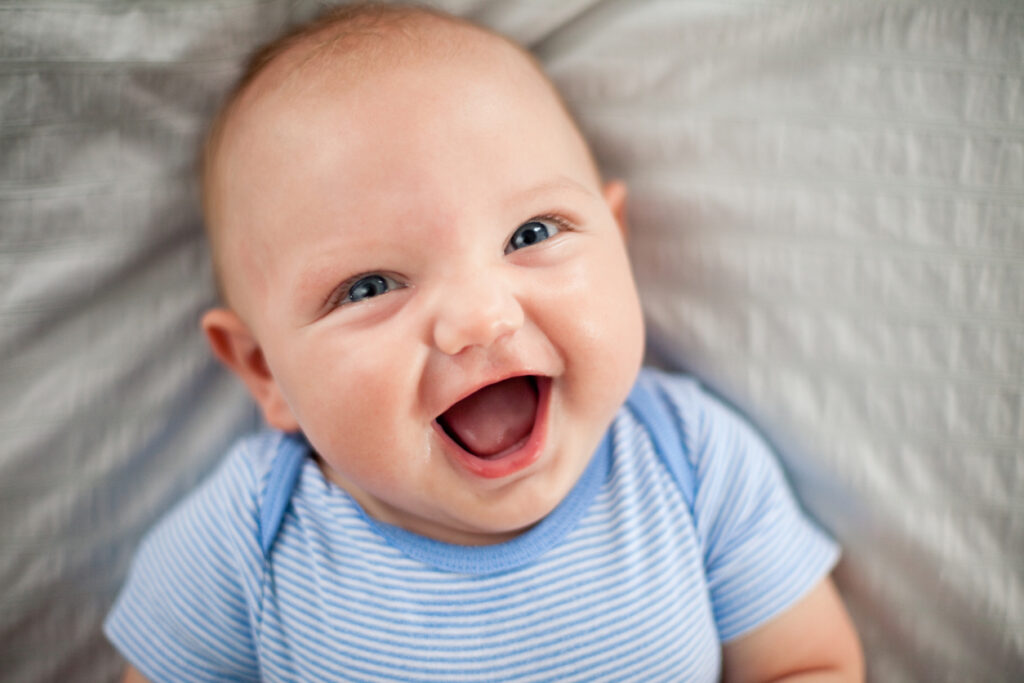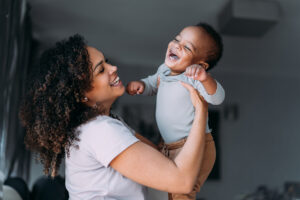Watching your baby grow and develop is one of the most rewarding experiences as a parent. At 2 months old, your baby is starting to become more aware of their surroundings and is learning new skills every day. Understanding developmental milestones can help you track your little one’s progress and know what to expect during this stage.
What Are Developmental Milestones?
Developmental milestones are skills and behaviors that most babies achieve by a certain age. These include physical, cognitive, social, and communication abilities. While every child develops at their own pace, these milestones provide general guidelines for what is typical at each stage of infancy.
Physical Milestones
At 2 months old, babies are growing stronger and gaining better control of their bodies. Some key physical milestones include:
- Head Control: Your baby may start holding their head up for short periods when placed on their tummy (tummy time is great for strengthening their neck and shoulder muscles!).
- Improved Reflexes: Reflexes like the rooting reflex (turning their head toward a touch on their cheek) and grasping objects are still strong.
- More Arm and Leg Movements: Your baby will kick their legs and wave their arms more purposefully, getting ready for future movements like rolling over.
- Tracking Objects: Babies at this age can follow a moving object or person with their eyes, which is an early sign of hand-eye coordination.
Cognitive and Sensory Development
Your 2 month old is learning how to interact with their environment and take in new experiences. Some cognitive and sensory milestones include:
- Recognizing Faces and Voices: Your baby will start to recognize familiar faces, especially parents and caregivers, and respond to their voices.
- Increased Alertness: Babies at this age spend more time awake and observing the world around them.
- Interest in Patterns and High-Contrast Colors: Simple patterns and bold colors, like black-and-white toys or books, will catch your baby’s attention.
Social and Emotional Development
Even at just 2 months old, babies are beginning to form social connections. You may notice:
- First Social Smiles: Your baby may start smiling in response to your face or voice – one of the most heartwarming milestones for parents!
- Cooing Sounds: They may begin making cooing noises, which is the early stage of language development.
- Turning Towards Sounds: Your baby will start responding to voices and sounds by turning their head.
How to Encourage Development
There are many simple ways to support your baby’s development at this stage:
- Talk and Sing to Your Baby: Even though they can’t talk yet, babies love hearing your voice. Talking, singing, and reading to them helps with early language skills.
- Provide Tummy Time: Give your baby supervised tummy time each day to strengthen their muscles and help with motor development.
- Engage in Face-to-Face Interaction: Make eye contact and smile at your baby to encourage social development.
- Use Toys and Books: High-contrast books, rattles, and soft toys can help stimulate their vision and motor skills.
When to Talk to a Pediatrician
Every baby develops at their own pace, but if you notice any of the following, consider checking in with your pediatrician:
- Lack of response to loud sounds.
- They do not make eye contact or follow objects with their eyes.
- Limited movement or difficulty controlling their arms and legs.
- No signs of social smiling by the end of the second month.
The 2-month stage is exciting as your baby starts showing early signs of interaction and movement. While developmental milestones can provide helpful guidance, remember that each child is unique. Enjoy every small moment and trust your instincts as a parent. If you ever have concerns, your pediatrician supports you and your baby’s growth journey.



